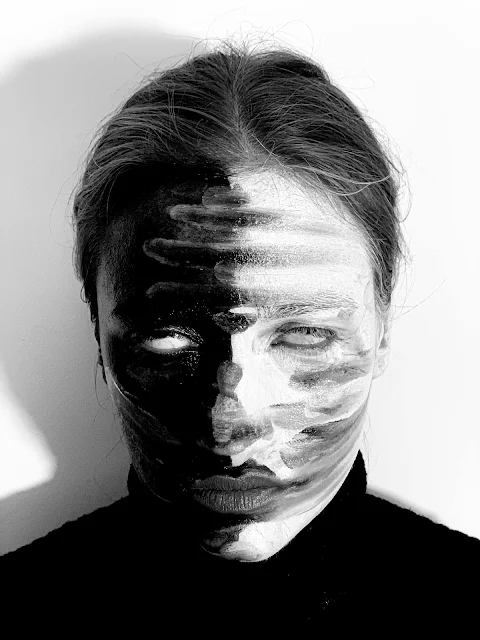Bipolar Disorder: Symptoms, Causes, Types, and Diagnosis
Bipolar disorder, formerly known as manic-depressive illness, is a mental health condition characterized by extreme mood swings that include emotional highs (mania or hypomania) and lows (depression). These mood swings can have a significant impact on a person's daily functioning, relationships, and overall quality of life. As a Top Health Coach, it's essential to raise awareness about bipolar disorder, its symptoms, causes, types, and diagnosis to promote understanding and support for individuals affected by this condition.
Understanding Bipolar Disorder:
Bipolar disorder is a complex and challenging condition that affects millions of people worldwide. While the exact cause of bipolar disorder is unknown, it is believed to result from a combination of genetic, biological, and environmental factors. It can occur at any age, but it often develops during late adolescence or early adulthood. Bipolar disorder is not a character flaw or a sign of weakness but rather a medical condition that requires proper diagnosis and treatment.
Symptoms of Bipolar Disorder:
The symptoms of bipolar disorder can vary widely from person to person and can be classified into two main categories: manic/hypomanic episodes and depressive episodes.
Manic/Hypomanic Episodes:
1. Elevated mood or irritability
2. Increased energy and activity levels
3. Racing thoughts and rapid speech
4. Decreased need for sleep
5. Impulsive behavior, such as excessive spending or risky sexual behavior
6. Grandiosity or inflated self-esteem
7. Difficulty concentrating or focusing on tasks
Depressive Episodes:
1. Persistent sadness or low mood
2. Loss of interest or pleasure in activities once enjoyed
3. Fatigue or loss of energy
4. Changes in appetite or weight
5. Sleep disturbances, such as insomnia or oversleeping
6. Feelings of worthlessness or guilt
7. Difficulty concentrating or making decisions
8. Thoughts of death or suicide
Types of Bipolar Disorder:
There are several types of bipolar disorder, each characterized by the severity and frequency of mood episodes:
1. Bipolar I Disorder:
Individuals with bipolar I disorder experience manic episodes that last at least seven days or are severe enough to require immediate hospitalization. Depressive episodes may also occur, lasting at least two weeks.
2. Bipolar II Disorder:
Bipolar II disorder is characterized by recurring depressive episodes and at least one hypomanic episode. Hypomania is a less severe form of mania that does not cause significant impairment in daily functioning.
3. Cyclothymic Disorder:
Cyclothymic disorder involves numerous periods of hypomanic symptoms and depressive symptoms that occur for at least two years in adults (one year in children and adolescents).
4. Other Specified and Unspecified Bipolar and Related Disorders:
This category includes bipolar disorder symptoms that do not meet the criteria for the above-defined types but still cause significant distress or impairment.
Diagnosis of Bipolar Disorder:
Diagnosing bipolar disorder involves a comprehensive evaluation by a mental health professional, typically a psychiatrist or psychologist. The diagnostic process may include:
1. Physical Examination:
A physical exam and laboratory tests may be performed to rule out medical conditions that could be causing symptoms.
2. Psychiatric Evaluation:
A thorough psychiatric evaluation will be conducted to assess symptoms, family history, and overall mental health status.
3. Mood Tracking:
Keeping a mood journal or using mood tracking apps can help track mood swings, sleep patterns, and other symptoms over time, providing valuable information for diagnosis and treatment planning.
4. Diagnostic Criteria:
Diagnosis of bipolar disorder is based on specific criteria outlined in the Diagnostic and Statistical Manual of Mental Disorders (DSM-5), published by the American Psychiatric Association.
5. Differential Diagnosis:
Bipolar disorder may be confused with other mental health conditions, such as major depressive disorder or borderline personality disorder. A careful differential diagnosis is essential to ensure accurate diagnosis and appropriate treatment.
Causes of Bipolar Disorder:
While the exact cause of bipolar disorder is unknown, several factors may contribute to its development:
1. Genetics:
Bipolar disorder tends to run in families, suggesting a genetic component. However, not everyone with a family history of bipolar disorder will develop the condition, indicating that other factors also play a role.
2. Brain Chemistry and Structure:
Imbalances in neurotransmitters, such as serotonin, dopamine, and norepinephrine, may contribute to the development of bipolar disorder. Structural abnormalities in certain brain regions involved in mood regulation have also been observed in individuals with bipolar disorder.
3. Environmental Factors:
Stressful life events, trauma, substance abuse, and disruptions in circadian rhythms (such as irregular sleep patterns) may trigger or exacerbate bipolar disorder symptoms in susceptible individuals.
Treatment of Bipolar Disorder:
Treatment for bipolar disorder typically involves a combination of medication, psychotherapy, and lifestyle changes:
1. Medication:
Mood stabilizers, such as lithium, anticonvulsants, and atypical antipsychotics, are commonly used to stabilize mood and prevent manic and depressive episodes. Antidepressants may also be prescribed cautiously, as they can sometimes trigger manic episodes.
2. Psychotherapy:
Cognitive-behavioral therapy (CBT), psychoeducation, and interpersonal and social rhythm therapy (IPSRT) can help individuals with bipolar disorder develop coping skills, improve medication adherence, and manage stress more effectively.
3. Lifestyle Changes:
Regular exercise, healthy eating habits, adequate sleep, and stress management techniques can all contribute to better mood stability and overall well-being in individuals with bipolar disorder.
4. Support Networks:
Building a strong support network of family, friends, and mental health professionals can provide invaluable support and encouragement for individuals living with bipolar disorder.
Conclusion:
Bipolar disorder is a complex and challenging mental health condition that requires careful diagnosis and treatment. By understanding the symptoms, causes, types, and diagnosis of bipolar disorder, we can better support individuals affected by this condition and help them achieve greater stability and well-being. As a top health coach, I'm committed to raising awareness about bipolar disorder and providing resources and support for those in need. Remember, you are not alone, and help is available.


